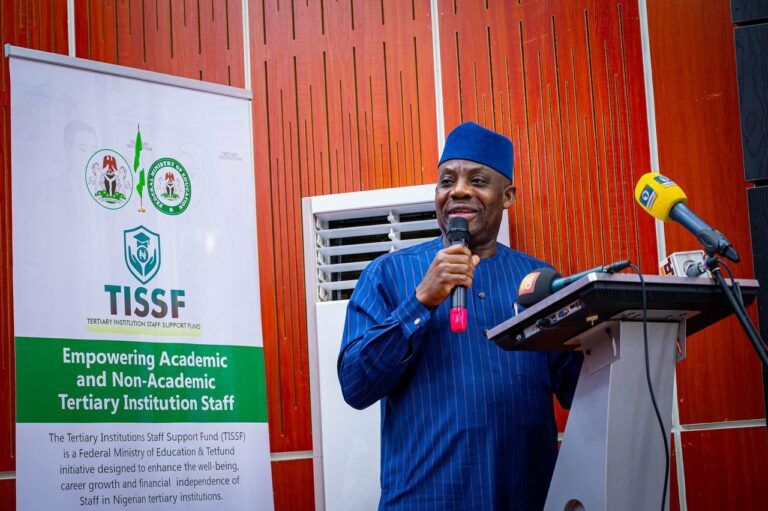Education is the backbone of any nation’s progress, and in Nigeria, recent years have seen an urgent call for reform in how children and young adults are prepared for the future. On August 31, 2025, the Federal Government of Nigeria officially unveiled a revised curriculum for basic, senior secondary, and technical education.
This move is a major step in reshaping the country’s educational landscape and equipping students with the skills, knowledge, and mindset they need to thrive in a fast-changing world. Let’s dive deep into what this curriculum change means, why it is important, and how it will affect students, parents, teachers, and Nigeria’s broader economy.
1. Why the Curriculum Review Was Needed
For decades, Nigeria’s education system has been heavily theory-driven and criticized for not preparing learners adequately for real-world challenges. Students often leave school without employable skills, resulting in high unemployment and underemployment rates among graduates.
Some of the issues the government identified included:
- Overloaded curricula with outdated content.
- Little focus on practical skills like digital literacy, entrepreneurship, and technical trades.
- Weak links between education and industry, leading to graduates who struggle to fit into the labor market.
- Global competitiveness: Many Nigerian students lag behind their peers in other countries when it comes to modern skills.
The revised curriculum aims to bridge this gap by ensuring that Nigerian students are not only knowledgeable but also “future-ready.”
2. What the New Curriculum Covers
The revised curriculum applies to basic education (primary and junior secondary), senior secondary education, and technical colleges. Here are the highlights:
(a) Basic Education Level
- Pupils will now be exposed to vocational and entrepreneurial skills from an early age.
- Skills such as plumbing, hairstyling, tailoring, GSM repairs, digital literacy, and agriculture have been officially embedded.
- By graduation from junior secondary, every child is expected to have acquired at least two practical skills in addition to academic knowledge.
(b) Senior Secondary Education
- Greater emphasis on science, technology, engineering, and mathematics (STEM), as well as digital and financial literacy.
- Inclusion of entrepreneurship modules, so students can learn how to start and manage small businesses.
- Stronger alignment with career paths, so learners can choose subjects that prepare them directly for university, polytechnics, or technical colleges.
(c) Technical and Vocational Education (TVET)
- Technical schools will now operate on a dual-training model:
- 80% practical training in real-life workshops and laboratories.
- 20% theory in classrooms.
- Partnerships with industries to give students hands-on industrial exposure before graduation.
- Graduates of technical colleges will leave school with market-ready skills that can earn them immediate employment or allow them to establish small businesses.
3. How This Fits into Nigeria’s Bigger Education Reform Agenda
This curriculum review is not happening in isolation. It is part of a broader strategy under the Nigeria Education Sector Renewal Initiative (NESRI).
Key recent milestones include:
- ₦120 billion investment in vocational education (April 2025): President Bola Tinubu approved massive funding to upgrade TVET and provide stipends, starter packs, and incentives for young learners.
- Upgrading of 38 technical colleges (May 2025): The government revamped facilities to align with global best practices.
- Earlier vocational introduction (January 2025): Practical trades were introduced into basic education, laying the foundation for lifelong skill development.
The August 2025 unveiling is therefore the culmination of all these reforms, now integrated into one cohesive curriculum framework.
4. Why This Matters to Students, Parents, and Teachers
For Students:
- Learning will no longer be just about passing exams; it will be about life skills.
- They will graduate with certifications and practical experience that can lead directly to jobs or entrepreneurship.
- Exposure to new subjects like coding, robotics, and digital tools means Nigerian students can compete globally.
For Parents:
- Parents can expect their children to become more independent and employable, even without a university degree.
- Families may save money in the long run, since graduates will be able to create businesses or find jobs quickly.
For Teachers:
- Teachers will undergo training and retraining to adapt to the new system.
- Teaching will shift from chalk-and-talk to demonstration and facilitation, where teachers guide students in hands-on activities.
- This will improve the prestige of teaching, as educators will be at the forefront of skill transfer.
5. Challenges to Expect
While the revised curriculum is commendable, implementation will face hurdles such as:
- Infrastructure gaps – many schools lack workshops, labs, and ICT facilities.
- Teacher preparedness – some teachers may resist change or lack technical skills themselves.
- Funding sustainability – ensuring that the ₦120bn and other resources are effectively managed.
- Monitoring and evaluation – making sure the new curriculum is not just on paper but truly transforms learning outcomes.
6. The Big Picture: Future-Ready Nigeria
This curriculum reform has the potential to be a game-changer for Nigeria. If properly implemented, it could:
- Reduce youth unemployment drastically.
- Boost Nigeria’s entrepreneurship ecosystem.
- Strengthen the country’s industrial base, as technical graduates fill skilled labor shortages.
- Position Nigerian education on par with global standards.
It signals a shift from an exam-oriented system to a competency-based education where learners are judged not just by what they know, but by what they can do.
7. Conclusion
The unveiling of the revised curriculum for basic, secondary, and technical education is a landmark moment in Nigeria’s educational journey. By integrating skills, entrepreneurship, digital knowledge, and technical training into the core of learning, the Federal Government is setting the stage for a future where Nigerian youths are not just job seekers but job creators and global competitors.
As with all reforms, the real test will be implementation—ensuring that schools, teachers, and industries work hand-in-hand to make this vision a reality. If Nigeria can overcome these challenges, the benefits will be profound: a stronger economy, a skilled workforce, and an empowered generation of students ready for the opportunities and challenges of the 21st century.
